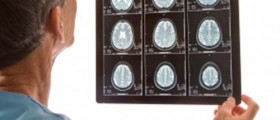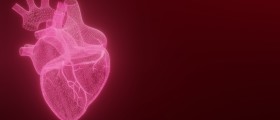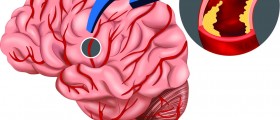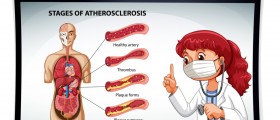
Blood clots develop as a consequence of damage to blood vessels. These clots represent clumps of hardened blood cells that are formed to stop leaking and repair the damage. However, blood clots that form inside the heart can block blood flow and cause heart problems.
Blood Clots Introduction
Clotting is an important mechanism that takes place in the body. Blood clots are formed from blood cells and fibrin protein and they stop leaking of blood from injured blood vessels. Blood clotting is important as it prevents bleeding and promotes healing of wounds.
However, blood clots can sometimes block a blood vessel and prevent normal blood and oxygen flow to other organs. This may result in serious complications. A blood clot that blocks a blood vessel is medically termed as a thrombus.
Blood clots that form within arteries are called arterial blood clots while blood clots in veins are known as venous blood clots. An arterial blood clot can cause a lot of damage because it prevents flow of blood to different body organs. Arterial blood clots are mainly seen in adults.
Blood clots can form in any organ. However, clots in the heart are especially dangerous. This is because the heart is linked to three major arteries that provide blood and oxygen supply to the organ and a clot in any of these arteries can result in heart attack.
Blood Clot in the Heart Causes
Blood clot can be formed due to a variety of reasons. It can be caused by damage to the inner lining of a blood vessel. Pregnant women and people suffering from rheumatoid arthritis have increased risk of blood clots. Individuals who have undergone surgery are particularly susceptible to blood clot formation.
Furthermore, development of blood clots is associated with smoking and heavy alcohol drinking. Obese and overweight people are also prone to blood clots. Other risk factors for blood clots include use of birth control pills and prolonged immobility.
Blood Clot in the Heart Symptoms
Symptoms of blood clots vary depending on the affected part of the body. A blood clot formed within the heart can cause shortness of breath and discomfort. Chest pain is one of the main symptoms of blood clot in the heart. Chest pain can be severe and radiate into the left arm.
Blood clots in the heart can deprive the organ of oxygen due to blocked blood flow. This can cause a heart attack. Fall in blood pressure also occurs, as well as dizziness and fainting spells. Finally, blood clot in the heart can cause the affected person to cough up blood.
Treatment for Blood Clot in the Heart
Blood clot in the heart can be treated with medications or surgery. Most commonly used medications are thrombolytics and anticoagulants. Surgical treatment can be used to remove the clot or place a stent to keep the blocked blood vessel open.

















Your thoughts on this
Loading...